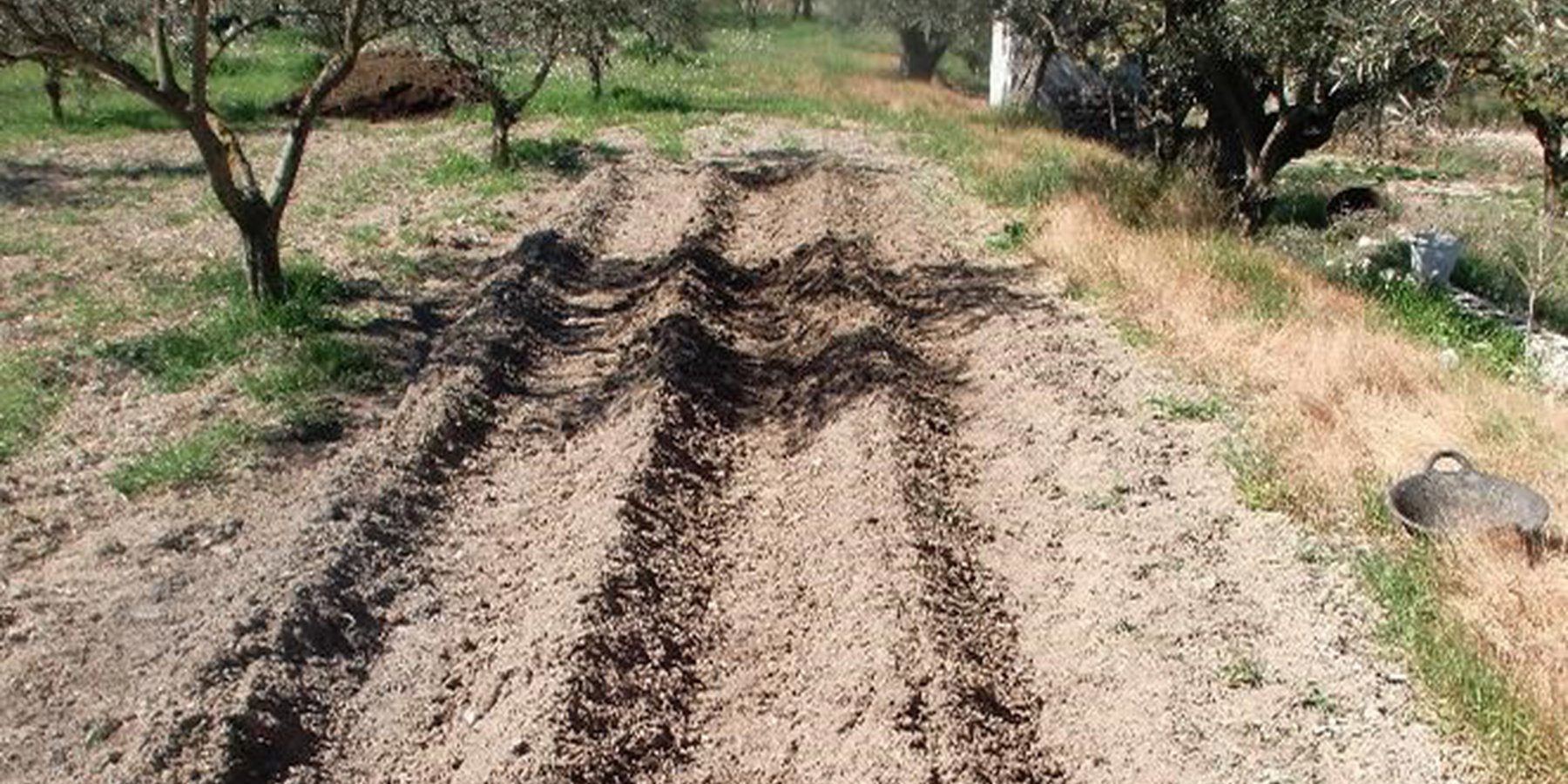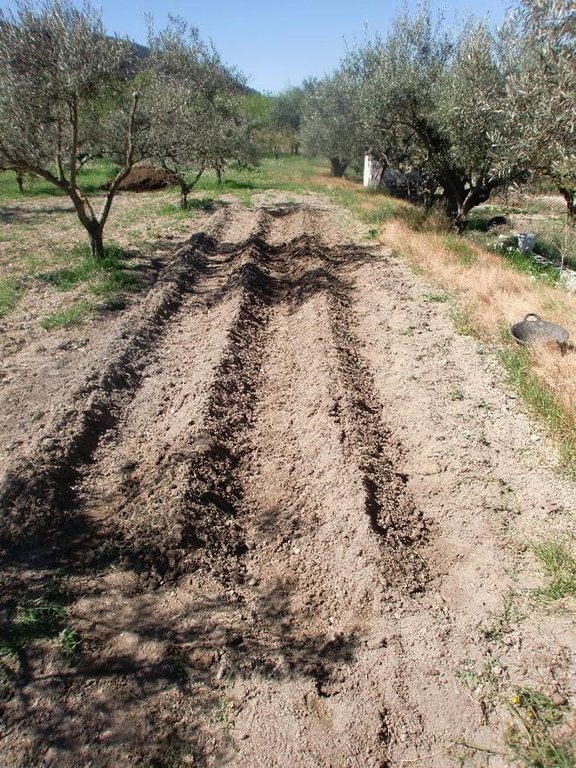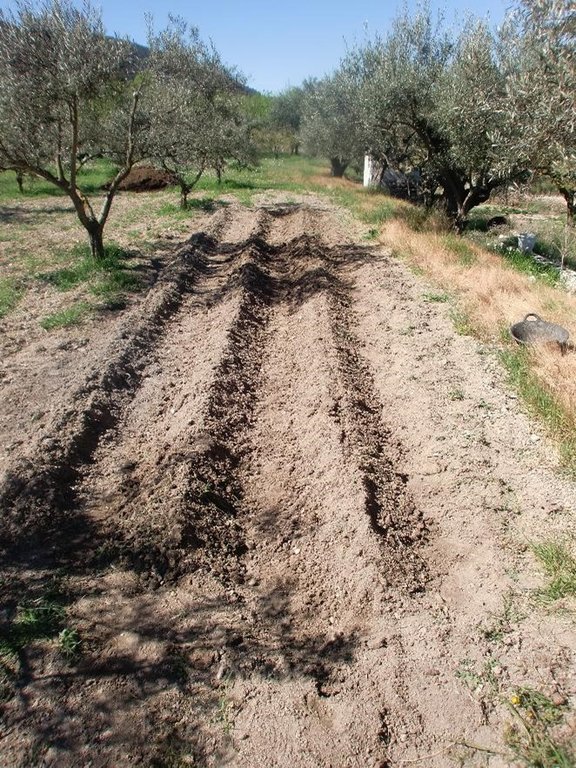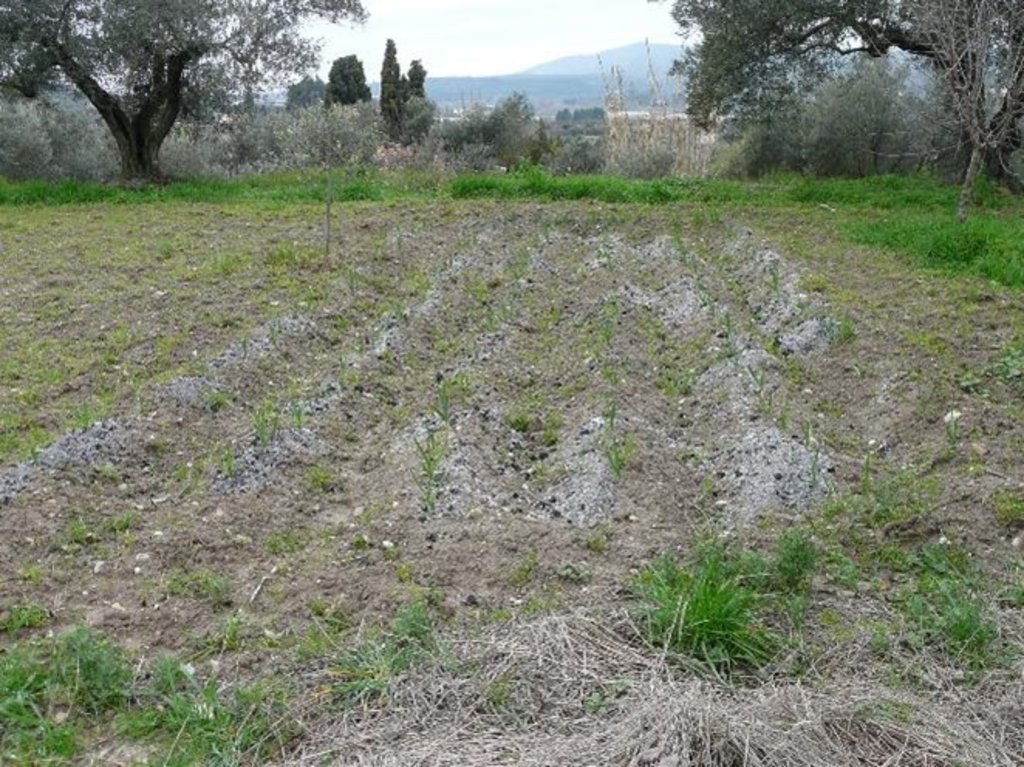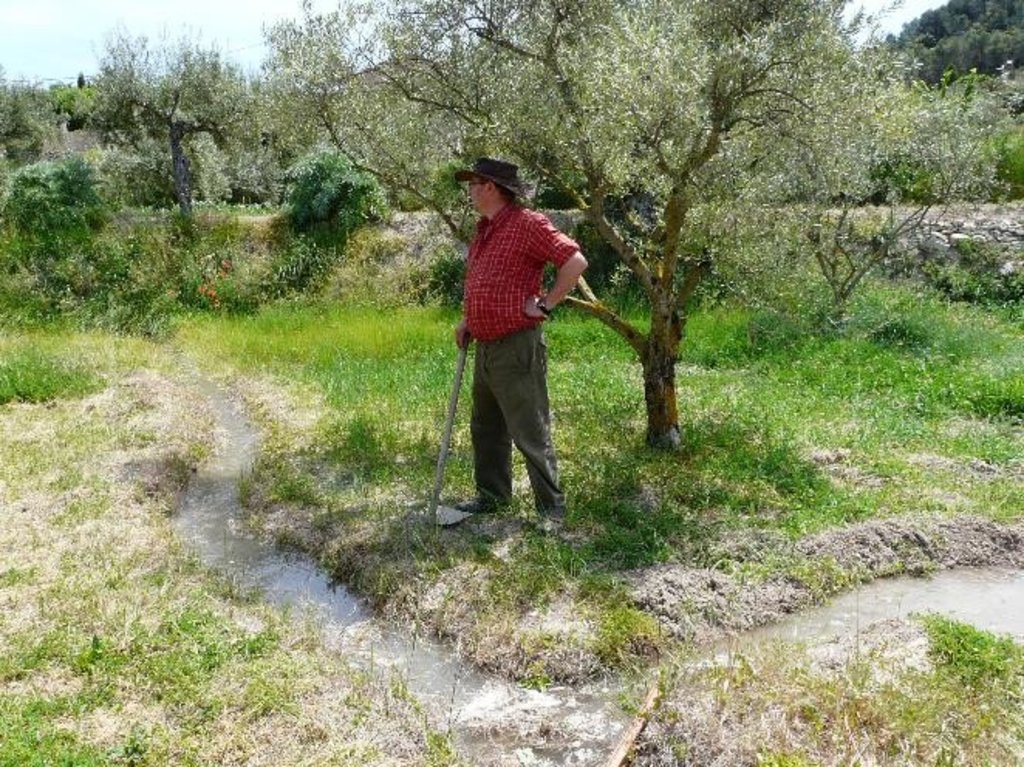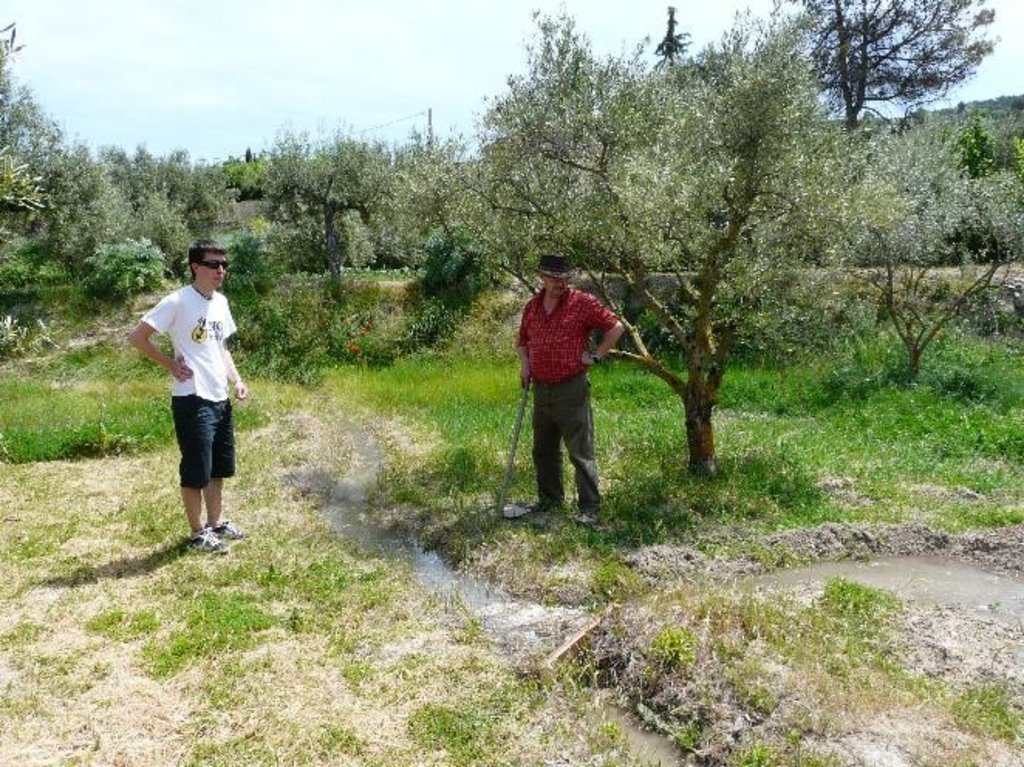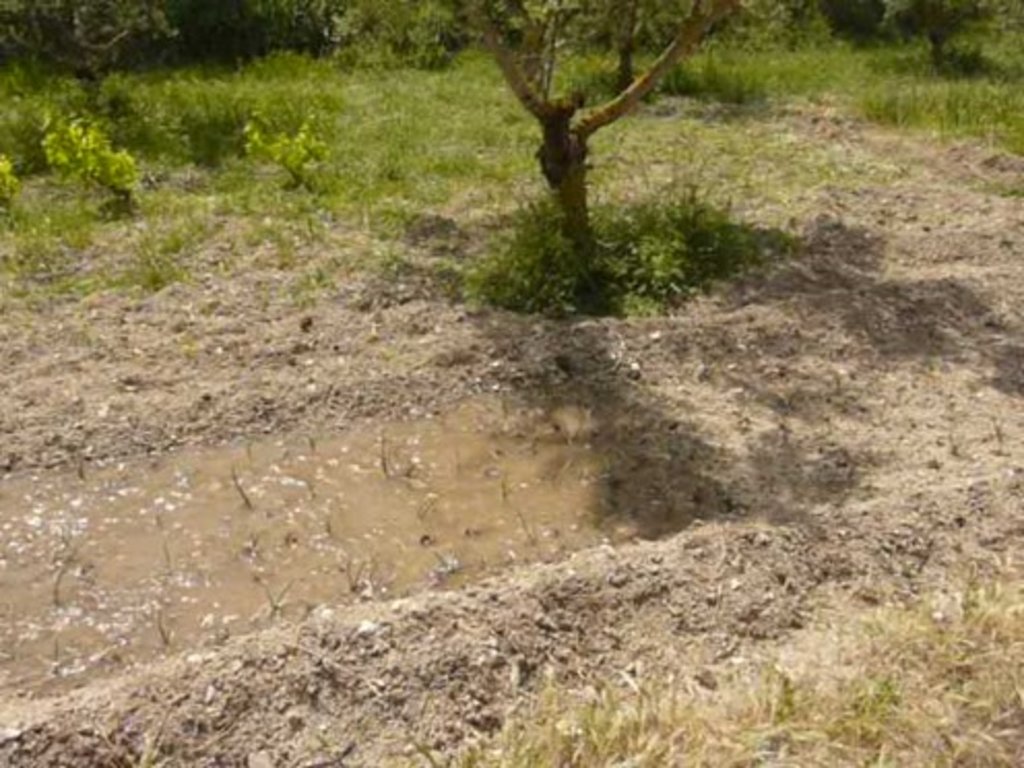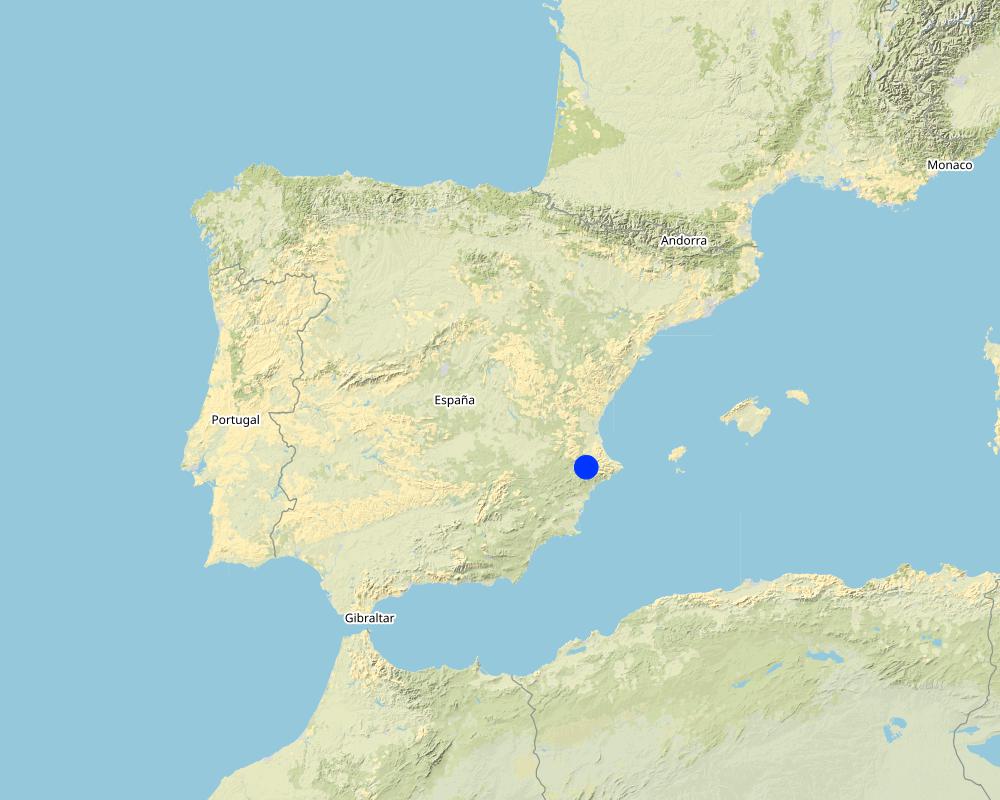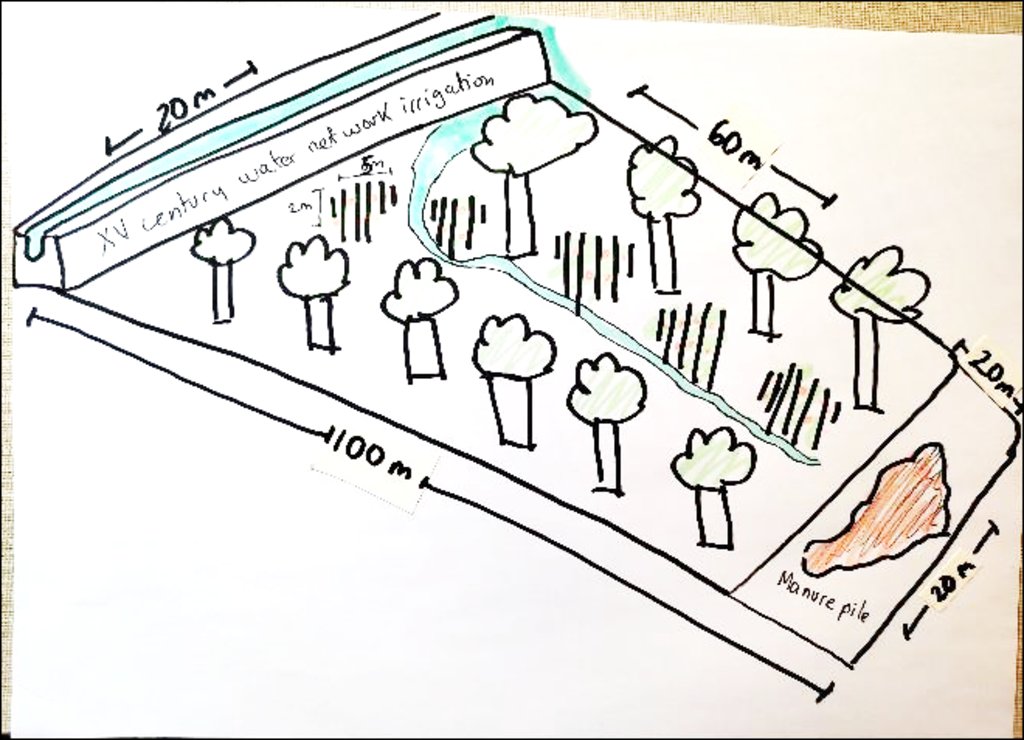Maintaining a 15th century irrigation system for a small orchard [สเปน]
- ผู้สร้างสรรค์:
- การอัพเดท:
- ผู้รวบรวม: Alicia Morugán-Coronado
- ผู้เรียบเรียง: –
- ผู้ตรวจสอบ: William Critchley, Rima Mekdaschi Studer
Canalización de aguas de origen islámico en el riego de un huerto familiar
technologies_6435 - สเปน
ดูส่วนย่อย
ขยายทั้งหมด ย่อทั้งหมด1. ข้อมูลทั่วไป
1.2 รายละเอียดที่ติดต่อได้ของผู้รวบรวมและองค์กรที่เกี่ยวข้องในการประเมินและการจัดเตรียมทำเอกสารของเทคโนโลยี
วิทยากรหลัก
ผู้ใช้ที่ดิน:
Berenguer Bodí Mercedes
สเปน
1.3 เงื่อนไขการใช้ข้อมูลที่ได้บันทึกผ่านทาง WOCAT
ผู้รวบรวมและวิทยากรหลักยอมรับเงื่อนไขเกี่ยวกับการใช้ข้อมูลที่ถูกบันทึกผ่านทาง WOCAT:
ใช่
1.4 การเปิดเผยเรื่องความยั่งยืนของเทคโนโลยีที่ได้อธิบายไว้
เทคโนโลยีที่ได้อธิบายไว้นี้เป็นปัญหาของความเสื่อมโทรมโทรมของที่ดินหรือไม่ จึงไม่ได้รับการยอมรับว่าเป็นเทคโนโลยีเพื่อการจัดการที่ดินอย่างยั่งยืน:
ไม่ใช่
2. การอธิบายลักษณะของเทคโนโลยี SLM
2.1 การอธิบายแบบสั้น ๆ ของเทคโนโลยี
คำจำกัดความของเทคโนโลยี:
A 15th century irrigation system is used on a small, intercropped and manured family orchard located in Valencia, in la Vall d’Albaida county (Spain)
2.2 การอธิบายแบบละเอียดของเทคโนโลยี
คำอธิบาย:
This technology is applied in a family orchard located in a small town (Bocairent) in Valencia, close to the Serra Mariola Natural Park. In the county of Vall d’Albaida, a 15th century system irrigates all the agricultural lands in the area. In this case study, the historical system has been used, since 1998, to irrigate a small plot of 0.2 ha. Water is diverted from the main water canal to a secondary channel which leads to the plot. Irrigation is applied when it is necessary, based on crop water requirements and the rainfall recorded. The original source of the water is the Serra Mariola range from where it flows into the Clarià river. Within the plot there are fruit trees as well as 5 subplots of 10 square meters (5 x 2m each). The subplots are used for vegetables (tomatoes, potatoes, fava beans, etc) under a rotational system (2 cycles per year). These 5 subplots are located between the rows of fruit trees (olives, almonds, figs, cherries, peaches), in an intercropping system. The whole field is fertilized annually with organic manure, which is stored at one end of the plot. This horse or sheep manure is acquired from a farm near the orchard. Pest control avoids artificial pesticides and fungicides: pests are controlled through encouraging natural predators. Weeds are removed by hand several times per season. The main purpose of this technology is the improvement of soil structure and organic matter content of the soil, while also preventing soil erosion caused by surface runoff. Avoiding pesticides and following an intercropping system gives multiple benefits: these include (a) maintaining biodiversity, (b) enhancing natural pollinators and pest predators, (c) respecting the Serra Mariola natural park, (d) improving ecosystem supporting services (nutrient cycling, soil formation, habitat provision, flood regulation) and regulating services (biological control pest and disease control), (d) creating pollination areas, and (e) encouraging carbon sequestration through permanent green cover in the intercropping system. Another benefit is the maintenance of cultural heritage: namely the 15th century, historically complex, irrigation system, which has been in use since being designed by Arabs up to the present day. Land users are continuously improving the technology by minimizing the impact on the agro-ecosystem through avoiding the use of pesticides. They are proud also with the improvement of the nutrient status of the soil, and the level of soil organic matter, achieved through the application of organic manure, as well as the intercropping and rotational system.
2.3 รูปภาพของเทคโนโลยี
2.5 ประเทศภูมิภาค หรือสถานที่ตั้งที่เทคโนโลยีได้นำไปใช้และได้รับการครอบคลุมโดยการประเมินนี้
ประเทศ:
สเปน
ภูมิภาค/รัฐ/จังหวัด:
Valencia
ข้อมูลจำเพาะเพิ่มเติมของสถานที่ตั้ง :
Bocairent
ระบุการกระจายตัวของเทคโนโลยี:
- ใช้ ณ จุดที่เฉพาะเจาะจงหรือเน้นไปยังบริเวณพื้นที่ขนาดเล็ก
Is/are the technology site(s) located in a permanently protected area?
ไม่ใช่
Map
×2.6 วันที่การดำเนินการ
ระบุปีที่ใช้:
1998
2.7 คำแนะนำของเทคโนโลยี
ให้ระบุว่าเทคโนโลยีถูกแนะนำเข้ามาอย่างไร:
- ด้วยการริเริ่มของผู้ใช้ที่ดินเอง
- เป็นส่วนหนึ่งของระบบแบบดั้งเดิมที่ทำก้นอยู่ (> 50 ปี)
3. การจัดประเภทของเทคโนโลยี SLM
3.1 วัตถุประสงค์หลักของเทคโนโลยี
- ปรับปรุงการผลิตให้ดีขึ้น
- ลด ป้องกัน ฟื้นฟู การเสื่อมโทรมของที่ดิน
- อนุรักษ์ระบบนิเวศน์
- ป้องกันพื้นที่ลุ่มน้ำ/บริเวณท้ายน้ำ โดยร่วมกับเทคโนโลยีอื่นๆ
- รักษาสภาพหรือปรับปรุงความหลากหลายทางชีวภาพ
3.2 ประเภทของการใช้ที่ดินในปัจจุบันที่ได้นำเทคโนโลยีไปใช้
Land use mixed within the same land unit:
ไม่ใช่

พื้นที่ปลูกพืช
- การปลูกพืชล้มลุกอายุปีเดียว
- การปลูกพืชยืนต้นที่ไม่มีเนื้อไม้
- การปลูกไม้ยืนต้น ไม้พุ่ม
จำนวนของฤดูเพาะปลูกต่อปี:
- 2
ระบุ:
Summer/Winter
Is intercropping practiced?
ใช่
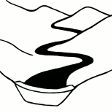
ทางน้ำ แหล่งน้ำ พื้นที่ชุ่มน้ำ
- ทางระบายน้ำ ทางน้ำ
3.3 Has land use changed due to the implementation of the Technology?
Has land use changed due to the implementation of the Technology?
- No (Continue with question 3.4)
3.4 การใช้น้ำ
การใช้น้ำของที่ดินที่มีการใช้เทคโนโลยีอยู่:
- น้ำฝนร่วมกับการชลประทาน
3.5 กลุ่ม SLM ที่ตรงกับเทคโนโลยีนี้
- ระบบหมุนเวียน (การปลูกพืชหมุนเวียน การพักดิน การเกษตรแบบไร่เลื่อนลอย)
- การจัดการศัตรูพืชและโรคพืชแบบผสมผสาน (รวมถึงเกษตรอินทรีย์ด้วย)
- การจัดการด้านชลประทาน (รวมถึงการลำเลียงส่งน้ำ การระบายน้ำ)
3.6 มาตรการ SLM ที่ประกอบกันเป็นเทคโนโลยี
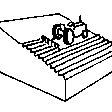
มาตรการจัดการพืช
- A1: พืช/สิ่งปกคลุมดิน
- A2: อินทรียวัตถุในดิน/ความอุดมสมบูรณ์ในดิน
- A6: Residue management
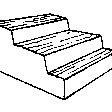
มาตรการอนุรักษ์ด้วยโครงสร้าง
- S3: Graded ditches, channels, waterways
- S7: การกักเก็บน้ำ/การส่งลำเลียง/อุปกรณ์การชลประทาน
3.7 รูปแบบหลักของการเสื่อมโทรมของที่ดินที่ได้รับการแก้ไขโดยเทคโนโลยี

การกัดกร่อนของดินโดยน้ำ
- Wt (Loss of topsoil): การสูญเสียดินชั้นบนหรือการกัดกร่อนที่ผิวดิน
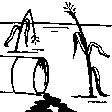
การเสื่อมโทรมของดินทางด้านเคมี
- Cn (Fertility decline): ความอุดมสมบูรณ์และปริมาณอินทรียวัตถุในดินถูกทำให้ลดลงไป (ไม่ได้เกิดจากสาเหตุการกัดกร่อน)
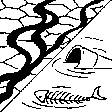
การเสื่อมโทรมของน้ำ
- Hp (Decline of surface water quality): การลดลงของคุณภาพน้ำที่ผิวดิน
3.8 การป้องกัน การลดลง หรือการฟื้นฟูความเสื่อมโทรมของที่ดิน
ระบุเป้าหมายของเทคโนโลยีกับความเสื่อมโทรมของที่ดิน:
- ป้องกันความเสื่อมโทรมของที่ดิน
- ลดความเสื่อมโทรมของดิน
4. ข้อมูลจำเพาะด้านเทคนิค กิจกรรมการนำไปปฏิบัติใช้ ปัจจัยนำเข้า และค่าใช้จ่าย
4.1 แบบแปลนทางเทคนิคของเทคโนโลยี
ข้อมูลจำเพาะด้านเทคนิค (แบบแปลนทางเทคนิคของเทคโนโลยี):
5 subplots of 10 square meters (5x2m) are used forvegetables crops (tomatoes, potatoes, fava beans, etc) in a crop rotation system (2 cycles per year). The subplots are between fruit trees line (olive tree, almond tree, fig tree, cherry tree, peaches trees), in an intercropping system. Irrigation is made with a temporal secondary channel from the mean water canal (51th century water network). All the agricultural field (0.2 ha) is fertilized annually with organic manure stored at the end of the plot.
ผู้เขียน:
Alicia Morugan-Coronado
วันที่:
09/04/2022
4.2 ข้อมูลทั่วไปเกี่ยวกับการคำนวณปัจจัยนำเข้าและค่าใช้จ่าย
ให้ระบุว่าค่าใช้จ่ายและปัจจัยนำเข้าได้รับการคำนวณอย่างไร:
- ต่อพื้นที่ที่ใช้เทคโนโลยี
ระบุขนาดและหน่วยพื้นที่:
0.2 ha
อื่นๆ หรือสกุลเงินประจำชาติ (ระบุ):
euro
If relevant, indicate exchange rate from USD to local currency (e.g. 1 USD = 79.9 Brazilian Real): 1 USD =:
0.99
4.3 กิจกรรมเพื่อการจัดตั้ง
| กิจกรรม | Timing (season) | |
|---|---|---|
| 1. | Soil preparation | One per season |
| 2. | Soil ploughing | Twice per year (2 cycles rotation) |
| 3. | Manuring | Once per year |
| 4. | Water irrigation | Periodically |
| 5. | Tree plantation | Once per year |
| 6. | Vegetables plantation | Twice per year (2 cycles rotation) |
4.4 ค่าใช้จ่ายของปัจจัยนำเข้าที่จำเป็นสำหรับการจัดตั้ง
| ปัจจัยนำเข้า | หน่วย | ปริมาณ | ค่าใช้จ่ายต่อหน่วย | ค่าใช้จ่ายทั้งหมดต่อปัจจัยนำเข้า | %ของค่าใช้จ่ายที่ก่อให้เกิดขึ้นโดยผู้ใช้ที่ดิน | |
|---|---|---|---|---|---|---|
| แรงงาน | Manuring | person-day | 1.0 | 100.0 | ||
| แรงงาน | Soil ploughing or soil preparation | person-day | 4.0 | 10.0 | 40.0 | 100.0 |
| แรงงาน | Water irrigation | litres | 100.0 | 100.0 | ||
| แรงงาน | Plants plantation | person-day | 2.0 | 25.0 | 50.0 | 100.0 |
| อุปกรณ์ | Hoe | piece | 1.0 | 10.0 | 10.0 | 100.0 |
| อุปกรณ์ | shovel | piece | 1.0 | 18.0 | 18.0 | 100.0 |
| วัสดุด้านพืช | Seed | gr | 200.0 | 1.0 | 200.0 | 100.0 |
| วัสดุด้านพืช | Tree | piece | 25.0 | 15.0 | 375.0 | 100.0 |
| วัสดุด้านพืช | Vegetables | piece | 25.0 | 4.0 | 100.0 | 100.0 |
| ปุ๋ยและสารฆ่า/ยับยั้งการเจริญเติบโตของสิ่งมีชีวิต (ไบโอไซด์) | Horse or sheep manure | kg | 80.0 | 100.0 | ||
| ค่าใช้จ่ายทั้งหมดของการจัดตั้งเทคโนโลยี | 793.0 | |||||
| Total costs for establishment of the Technology in USD | 801.01 | |||||
4.5 การบำรุงรักษาสภาพหรือกิจกรรมที่เกิดขึ้นเป็นประจำ
| กิจกรรม | ช่วงระยะเวลา/ความถี่ | |
|---|---|---|
| 1. | Weeding | 4 times per year |
| 2. | Harvesting | 2 times per year |
| 3. | Manuring | 1 time per year |
| 4. | Vegetables or seed plantation | 2 times per year o vegetable cycle |
| 5. | Tree re-plantation | Eventually if tree loss |
| 6. | Soil ploughing | 2 times per year or vegetables cycle |
| 7. | Water irrigation | Periodically |
4.6 ค่าใช้จ่ายของปัจจัยนำเข้าและกิจกรรมที่เกิดขึ้นเป็นประจำที่ต้องการการบำรุงรักษา (ต่อปี)
| ปัจจัยนำเข้า | หน่วย | ปริมาณ | ค่าใช้จ่ายต่อหน่วย | ค่าใช้จ่ายทั้งหมดต่อปัจจัยนำเข้า | %ของค่าใช้จ่ายที่ก่อให้เกิดขึ้นโดยผู้ใช้ที่ดิน | |
|---|---|---|---|---|---|---|
| แรงงาน | Weeding | person-day | 1.0 | 100.0 | ||
| แรงงาน | Harvesting | person-day | 1.0 | 100.0 | ||
| แรงงาน | Soil ploughing | person-day | 1.0 | 100.0 | ||
| แรงงาน | Water irrigation | Litres | 100.0 | 100.0 | ||
| อุปกรณ์ | Hoe | piece | 1.0 | 10.0 | 10.0 | 100.0 |
| อุปกรณ์ | Scissors | piece | 1.0 | 10.0 | 10.0 | 100.0 |
| อุปกรณ์ | Shovel | piece | 1.0 | 15.0 | 15.0 | 100.0 |
| วัสดุด้านพืช | Seed | gr | 200.0 | 1.0 | 200.0 | 100.0 |
| วัสดุด้านพืช | Vegetables plant | pieces | 20.0 | 4.0 | 80.0 | 100.0 |
| วัสดุด้านพืช | Fruit trees plant | pieces | 5.0 | 18.0 | 90.0 | 100.0 |
| ปุ๋ยและสารฆ่า/ยับยั้งการเจริญเติบโตของสิ่งมีชีวิต (ไบโอไซด์) | Manuring | Kg | 80.0 | 100.0 | ||
| อื่น ๆ | Weeding | person-day | 1.0 | 100.0 | ||
| ค่าใช้จ่ายทั้งหมดของการบำรุงรักษาสภาพเทคโนโลยี | 405.0 | |||||
| Total costs for maintenance of the Technology in USD | 409.09 | |||||
4.7 ปัจจัยสำคัญที่สุดที่มีผลกระทบต่อค่าใช้จ่าย
ปัจจัยสำคัญที่สุดที่มีผลกระทบต่อค่าใช้จ่ายต่างๆ:
The users has already the material and the plants, only the manure is a gift from a neighbour
5. สิ่งแวดล้อมทางธรรมชาติและของมนุษย์
5.1 ภูมิอากาศ
ฝนประจำปี
- < 250 ม.ม.
- 251-500 ม.ม.
- 501-750 ม.ม.
- 751-1,000 ม.ม.
- 1,001-1,500 ม.ม.
- 1,501-2,000 ม.ม.
- 2,001-3,000 ม.ม.
- 3,001-4,000 ม.ม.
- > 4,000 ม.ม.
ระบุปริมาณน้ำฝนเฉลี่ยรายปี (ถ้ารู้) :หน่วย ม.ม.
520.00
ข้อมูลจำเพาะ/ความคิดเห็นเรื่องปริมาณน้ำฝน:
Bocairent has dry periods in January, February, March, June, July, August and December.
On average, September is the wettest month with 2 inch (50 mm) of precipitation.
On average, July is the driest month with 0.2 inch (4 mm) of precipitation.
เขตภูมิอากาศเกษตร
- กึ่งแห้งแล้ง
In Bocairent, the average annual temperature is 15.5 °C | 60.0 °F.
5.2 สภาพภูมิประเทศ
ค่าเฉลี่ยความลาดชัน:
- ราบเรียบ (0-2%)
- ลาดที่ไม่ชัน (3-5%)
- ปานกลาง (6-10%)
- เป็นลูกคลื่น (11-15%)
- เป็นเนิน (16-30%)
- ชัน (31-60%)
- ชันมาก (>60%)
ธรณีสัณฐาน:
- ที่ราบสูง/ที่ราบ
- สันเขา
- ไหล่เขา
- ไหล่เนินเขา
- ตีนเนิน
- หุบเขา
ระดับความสูง:
- 0-100 เมตร
- 101-500 เมตร
- 501-1,000 เมตร
- 1,001-1,500 เมตร
- 1,501-2,000 เมตร
- 2,001-2,500 เมตร
- 2,501-3,000 เมตร
- 3,001-4,000 เมตร
- > 4,000 เมตร
ให้ระบุถ้าเทคโนโลยีได้ถูกนำไปใช้:
- ไม่เกี่ยวข้อง
ความคิดเห็นและข้อมูลจำเพาะเพิ่มเติมเรื่องสภาพภูมิประเทศ:
Is a flat terrain, approximately 1% slope.
5.3 ดิน
ค่าเฉลี่ยความลึกของดิน:
- ตื้นมาก (0-20 ซ.ม.)
- ตื้น (21-50 ซ.ม.)
- ลึกปานกลาง (51-80 ซ.ม.)
- ลึก (81-120 ซ.ม.)
- ลึกมาก (>120 ซ.ม.)
เนื้อดิน (ดินชั้นบน):
- ปานกลาง (ดินร่วน ทรายแป้ง)
เนื้อดินล่าง (> 20 ซ.ม.ต่ำจากผิวดิน):
- ละเอียด/หนัก (ดินเหนียว)
อินทรียวัตถุในดิน:
- ต่ำ (<1%)
5.4 ความเป็นประโยชน์และคุณภาพของน้ำ
ระดับน้ำใต้ดิน:
<5 เมตร
น้ำไหลบ่าที่ผิวดิน:
ดี
คุณภาพน้ำ (ที่ยังไม่ได้บำบัด):
เป็นน้ำเพื่อการดื่มที่ดี
Water quality refers to:
surface water
ความเค็มของน้ำเป็นปัญหาหรือไม่:
ไม่ใช่
กำลังเกิดน้ำท่วมในพื้นที่หรือไม่:
ใช่
บ่อยครั้ง:
เป็นครั้งเป็นคราว
5.5 ความหลากหลายทางชีวภาพ
ความหลากหลายทางชนิดพันธุ์:
- สูง
ความหลากหลายของแหล่งที่อยู่:
- สูง
5.6 ลักษณะของผู้ใช้ที่ดินที่นำเทคโนโลยีไปปฏิบัติใช้
อยู่กับที่หรือเร่ร่อน:
- อยู่กับที่
แนวทางการตลาดของระบบการผลิต:
- เพื่อการยังชีพ (หาเลี้ยงตนเอง)
รายได้ที่มาจากนอกฟาร์ม:
- > 50% ของรายได้ทั้งหมด
ระดับของความมั่งคั่งโดยเปรียบเทียบ:
- พอมีพอกิน
เป็นรายบุคคล/ครัวเรือน:
- เป็นรายบุคคล/ครัวเรือน
ระดับของการใช้เครื่องจักรกล:
- งานที่ใช้แรงกาย
เพศ:
- หญิง
อายุของผู้ใช้ที่ดิน:
- วัยกลางคน
ระบุลักษณะอื่นๆที่เกี่ยวข้องของผู้ใช้ที่ดิน:
It is a family with 6 members of different ages, the oldest is 60 years-old and the youngest 24 years old
5.7 Average area of land used by land users applying the Technology
- < 0.5 เฮกตาร์
- 0.5-1 เฮกตาร์
- 1-2 เฮกตาร์
- 2-5 เฮกตาร์
- 5-15 เฮกตาร์
- 15-50 เฮกตาร์
- 50-100 เฮกตาร์
- 100-500 เฮกตาร์
- 500-1,000 เฮกตาร์
- 1,000-10,000 เฮกตาร์
- >10,000 เฮกตาร์
พิจารณาว่าเป็นขนาดเล็ก กลาง หรือขนาดใหญ่ (ซึ่งอ้างอิงถึงบริบทระดับท้องถิ่น):
- ขนาดเล็ก
แสดงความคิดเห็น:
0.2 ha
5.8 กรรมสิทธิ์ในที่ดิน สิทธิในการใช้ที่ดินและสิทธิในการใช้น้ำ
กรรมสิทธิ์ในที่ดิน:
- รายบุคคล ได้รับสิทธิครอบครอง
สิทธิในการใช้ที่ดิน:
- รายบุคคล
สิทธิในการใช้น้ำ:
- รายบุคคล
Are land use rights based on a traditional legal system?
ใช่
5.9 การเข้าถึงบริการและโครงสร้างพื้นฐาน
สุขภาพ:
- จน
- ปานกลาง
- ดี
การศึกษา:
- จน
- ปานกลาง
- ดี
ความช่วยเหลือทางด้านเทคนิค:
- จน
- ปานกลาง
- ดี
การจ้างงาน (เช่น ภายนอกฟาร์ม):
- จน
- ปานกลาง
- ดี
ตลาด:
- จน
- ปานกลาง
- ดี
พลังงาน:
- จน
- ปานกลาง
- ดี
ถนนและการขนส่ง:
- จน
- ปานกลาง
- ดี
น้ำดื่มและการสุขาภิบาล:
- จน
- ปานกลาง
- ดี
บริการด้านการเงิน:
- จน
- ปานกลาง
- ดี
6. ผลกระทบและสรุปคำบอกกล่าว
6.1 ผลกระทบในพื้นที่ดำเนินการ (On-site) จากการใช้เทคโนโลยี
ผลกระทบทางด้านเศรษฐกิจและสังคม
การผลิต
การผลิตพืชผล
แสดงความคิดเห็น/ระบุ:
The user observes an increase in yield year per year, even in the fruit trees
คุณภาพพืชผล
แสดงความคิดเห็น/ระบุ:
The user says that the quality of the vegetables increases annually (visual observation)
ความเป็นประโยชน์และคุณภาพของน้ำ
การมีน้ำดื่มไว้ให้ใช้
แสดงความคิดเห็น/ระบุ:
The user explain that avoiding the use of pesticides and inorganic fertilization, the quality of water is better than before
รายได้และค่าใช้จ่าย
ค่าใช่จ่ายของปัจจัยการผลิตทางการเกษตร
แสดงความคิดเห็น/ระบุ:
Because the manure is a gift, no costs are involve in fertilization labour. Avoiding pesticides is another reason to decrease the agricultural inputs
ผลกระทบด้านสังคมวัฒนธรรมอื่น ๆ
ความมั่นคงด้านอาหาร / พึ่งตนเองได้
แสดงความคิดเห็น/ระบุ:
The user and its family self-consumed the vegetables that they harvest in the orchard
สถานการณ์ด้านสุขภาพ
แสดงความคิดเห็น/ระบุ:
Avoiding pesticides and chemical fertilization the health risks decreased on the user and its family
โอกาสทางด้านสันทนาการ
แสดงความคิดเห็น/ระบุ:
The legacy of the orchard to the next family members is assured because is a tradition to spend weekends working on the orchard and later eat Paella (a traditional Spanish dish)
SLM หรือความรู้เรื่องความเสื่อมโทรมของที่ดิน
แสดงความคิดเห็น/ระบุ:
The user learns about soil quality and degratation with the experience and observation
ผลกระทบด้านนิเวศวิทยา
วัฐจักรน้ำหรือน้ำบ่า
น้ำไหลบ่าที่ผิวดิน
แสดงความคิดเห็น/ระบุ:
the permanent green cover as an intercropping system maintains the soil and decreases surface runoff
ดิน
ความชื้นในดิน
แสดงความคิดเห็น/ระบุ:
the permanent green cover as an intercropping system maintains the soil moisture
สิ่งปกคลุมดิน
แสดงความคิดเห็น/ระบุ:
the permanent green cover as an intercropping system maintains the soil
การสูญเสียดิน
แสดงความคิดเห็น/ระบุ:
the permanent green cover as an intercropping system avoids soil loss
การสะสมของดิน
แสดงความคิดเห็น/ระบุ:
the permanent green cover as an intercropping system enhances soil formation
การเกิดแผ่นแข็งที่ผิวดิน /การเกิดชั้นดาน
แสดงความคิดเห็น/ระบุ:
the permanent green cover as an intercropping system decreases soil sealing
การอัดแน่นของดิน
แสดงความคิดเห็น/ระบุ:
the permanent green cover and the manure application decreases soil compactation
การหมุนเวียนและการเติมของธาตุอาหาร
แสดงความคิดเห็น/ระบุ:
the permanent green cover and the manure application increases nutrient cycling
อินทรียวัตถุในดิน/ต่ำกว่าดินชั้น C
แสดงความคิดเห็น/ระบุ:
the permanent green cover and the manure application increases organic matter anually
ความหลากหลายทางชีวภาพของพืชและสัตว์
การปกคลุมด้วยพืช
แสดงความคิดเห็น/ระบุ:
The intercropping system maintain vegetation cover during the year between fruit trees rows
มวลชีวภาพ/เหนือดินชั้น C
แสดงความคิดเห็น/ระบุ:
The intercropping system maintain biomassC during the year between fruit trees rows
ความหลากหลายทางชีวภาพของพืช
แสดงความคิดเห็น/ระบุ:
The intercropping system increases plant diversity during the year between fruit trees rows
พืชพันธุ์ต่างถิ่นที่รุกล้ำเข้ามา
แสดงความคิดเห็น/ระบุ:
The intercropping system attracts pollinators and pest predators naturally
ความหลากหลายทางชีวภาพของสัตว์
แสดงความคิดเห็น/ระบุ:
The intercropping system enhances the presence of birds or little mammals
การจัดการศัตรูพืชและโรคพืช
แสดงความคิดเห็น/ระบุ:
The intercropping system enhances the pest control with the presence of natural killers pest
6.2 ผลกระทบนอกพื้นที่ดำเนินการ (Off-site) จากการใช้เทคโนโลยี
การไหลของน้ำคงที่และสม่ำเสมอในช่วงฤดูแล้ง
ความสามารถต้านทานการเปลี่ยนแปลง / ความสามารถในการคัดกรอง
6.3 การเผชิญและความตอบสนองของเทคโนโลยีต่อการเปลี่ยนแปลงสภาพภูมิอากาศที่ค่อยเป็นค่อยไป และสภาพรุนแรงของภูมิอากาศ / ภัยพิบัติ (ที่รับรู้ได้โดยผู้ใช้ที่ดิน)
การเปลี่ยนแปลงสภาพภูมิอากาศที่ค่อยเป็นค่อยไป
การเปลี่ยนแปลงสภาพภูมิอากาศที่ค่อยเป็นค่อยไป
| ฤดู | increase or decrease | เทคโนโลยีมีวิธีการรับมืออย่างไร | |
|---|---|---|---|
| อุณหภูมิประจำปี | เพิ่มขึ้น | ปานกลาง | |
| อุณหภูมิตามฤดูกาล | ฤดูใบไม้ร่วง | เพิ่มขึ้น | ปานกลาง |
| ฝนประจำปี | เพิ่มขึ้น | ดี | |
| ฝนตามฤดู | ฤดูใบไม้ร่วง | เพิ่มขึ้น | ดี |
สภาพรุนแรงของภูมิอากาศ (ภัยพิบัติ)
ภัยพิบัติทางอุตุนิยมวิทยา
| เทคโนโลยีมีวิธีการรับมืออย่างไร | |
|---|---|
| พายุลูกเห็บประจำท้องถิ่น | ดี |
| พายุทรายหรือพายุฝุ่นประจำท้องถิ่น | ดี |
ภัยพิบัติจากสภาพภูมิอากาศ
| เทคโนโลยีมีวิธีการรับมืออย่างไร | |
|---|---|
| คลื่นความร้อน | ดี |
| คลื่นความหนาว | ดีมาก |
| ภัยจากฝนแล้ง | ดี |
| ไฟป่า | ดีมาก |
ภัยพิบัติจากน้ำ
| เทคโนโลยีมีวิธีการรับมืออย่างไร | |
|---|---|
| น้ำท่วมฉับพลัน | ดี |
ภัยพิบัติทางชีวภาพ
| เทคโนโลยีมีวิธีการรับมืออย่างไร | |
|---|---|
| การบุกรุกของแมลง / หนอน | ดี |
6.4 การวิเคราะห์ค่าใช้จ่ายและผลประโยชน์ที่ได้รับ
ผลประโยชน์ที่ได้รับเปรียบเทียบกับค่าใช้จ่ายในการจัดตั้งเป็นอย่างไร (จากมุมมองของผู้ใช้ที่ดิน)
ผลตอบแทนระยะสั้น:
ด้านบวกเล็กน้อย
ผลตอบแทนระยะยาว:
ด้านบวกอย่างมาก
ผลประโยชน์ที่ได้รับเปรียบเทียบกับค่าใช้จ่ายในการบำรุงรักษาหรือต้นทุนที่เกิดขึ้นซ้ำอีก เป็นอย่างไร (จากมุมมองของผู้ใช้ที่ดิน)
ผลตอบแทนระยะสั้น:
เป็นกลางหรือสมดุล
ผลตอบแทนระยะยาว:
เป็นกลางหรือสมดุล
6.5 การปรับตัวของเทคโนโลยี
- ครั้งเดียวหรือเป็นการทดลอง
Of all those who have adopted the Technology, how many did so spontaneously, i.e. without receiving any material incentives/ payments?
- 0-10%
6.6 การปรับตัว
เทคโนโลยีได้รับการปรับเปลี่ยนเมื่อเร็วๆนี้ เพื่อให้ปรับตัวเข้ากับสภาพที่กำลังเปลี่ยนแปลงหรือไม่:
ไม่ใช่
6.7 จุดแข็ง / ข้อได้เปรียบ / โอกาสของเทคโนโลยี
| จุดแข็ง / ข้อได้เปรียบ / โอกาสในทัศนคติของผู้ใช้ที่ดิน |
|---|
| Free pesticides orchard, with organic manure from local farm and maintaining irrigation water supply following millenary water rules |
| Eating healthily |
| Saving money in vegetables and fruit orchards |
| Eating your own grow food |
| จุดแข็ง / ข้อได้เปรียบ / โอกาสในทัศนคติของผู้รวบรวมหรือวิทยากรหลัก |
|---|
| Improvement in soil structure and minimizing soil compactation |
| Improvement in organic matter content |
| Controlling water erosion on surface |
| Maintaining biodiversity of natural reserve avoiding the use of pesticides |
6.8 จุดอ่อน / ข้อเสียเปรียบ / ความเสี่ยงของเทคโนโลยีและวิธีการแก้ไข
| จุดอ่อน / ข้อเสียเปรียบ / ความเสี่ยงในทัศนคติของผู้ใช้ที่ดิน | มีวิธีการแก้ไขได้อย่างไร |
|---|---|
| Manual hours for land preparation | Family help on weekends |
| Pest control manual | Try new methods or assessing the correct moment to do the control |
| Controlling spontaneus plants manually | Diversify orchard to minimize the presence of spontaneous plants |
| จุดอ่อน / ข้อเสียเปรียบ / ความเสี่ยงในทัศนคติของผู้รวบรวมหรือวิทยากรหลัก | มีวิธีการแก้ไขได้อย่างไร |
|---|---|
| Initial preparation of terrain | Overcome by saving cost in annual crop yield |
| Improving knowledgement in crop diversification | Receiving technical advice from experts |
| Problems in pest control | Improving the presence of beneficial insects or predators |
7. การอ้างอิงและการเชื่อมต่อ
7.1 วิธีการและแหล่งข้อมูล
- ไปเยี่ยมชมภาคสนาม การสำรวจพื้นที่ภาคสนาม
1 field visit
- การสัมภาษณ์กับผู้ใช้ที่ดิน
10 land user interviews
- การเก็บรวบรวมมาจากรายงานและเอกสารที่มีอยู่
วันที่เก็บรวบรวมข้อมูล(ภาคสนาม) :
09/04/2022
แสดงความคิดเห็น:
One in situ interview (09 April 2022) and the rest of info was compiled by phone with the land user
7.2 การอ้างอิงถึงสิ่งตีพิมพ์
หัวข้อ, ผู้เขียน, ปี, หมายเลข ISBN:
Historical irrigation system at l'Horta de València
ชื่อเรื่อง ผู้เขียน ปี ISBN:
https://www.fao.org/giahs/news/newsletter-detail/es/c/1253069
หัวข้อ, ผู้เขียน, ปี, หมายเลข ISBN:
Los regadíos tradicionales del Vinalopó (Alto y Medio). Jorge Hermosilla, ed. Colección: Regadíos Históricos Valencianos. ISBN: 978-84-370-6777-3
ชื่อเรื่อง ผู้เขียน ปี ISBN:
https://puv.uv.es/los-regadios-tradicionales-del-vinalopo-alto-y-medio.html?___store=espanyol&___from_store=valencia
หัวข้อ, ผู้เขียน, ปี, หมายเลข ISBN:
Los regadíos tradicionales del Vinalopó (Alto y Medio) AUTOR/A: HERMOSILLA PLA, JORGE
ชื่อเรื่อง ผู้เขียน ปี ISBN:
https://www.todostuslibros.com/libros/los-regadios-tradicionales-del-vinalopo-alto-y-medio_978-84-482-4686-0
หัวข้อ, ผู้เขียน, ปี, หมายเลข ISBN:
Los regadíos históricos españoles paisajes cuturales, paisajes sostenibles AUTOR/A: HERMOSILLA PLA, JORGE / PEÑA ORTIZ, MARTÍN / ANTEQUERA FERNÁNDEZ, MIGUEL 978-84-491-1000-9
ชื่อเรื่อง ผู้เขียน ปี ISBN:
https://www.todostuslibros.com/libros/los-regadios-historicos-espanoles_978-84-491-1000-9
หัวข้อ, ผู้เขียน, ปี, หมายเลข ISBN:
Evaluación patrimonial de azudes en la demarcación hidrográfica del Júcar AUTOR/A: HERMOSILLA PLA, JORGE 978-84-17508-17-3 / Tirant Humanidades
ชื่อเรื่อง ผู้เขียน ปี ISBN:
https://www.todostuslibros.com/libros/evaluacion-patrimonial-de-azudes-en-la-demarcacion-hidrografica-del-jucar_978-84-17508-17-3
หัวข้อ, ผู้เขียน, ปี, หมายเลข ISBN:
Cuadernos de historia de España versión impresa ISSN 0325-1195versión On-line ISSN 1850-2717 Cuad. hist. Esp. v.80 Buenos Aires ene./dic. 2006
ชื่อเรื่อง ผู้เขียน ปี ISBN:
http://www.scielo.org.ar/scielo.php?script=sci_arttext&pid=S0325-11952006000100002
7.3 Links to relevant online information
ชื่อเรื่องหรือคำอธิบาย:
Heritage-catalogue valencian
URL:
https://www.uv.es/horta-valencia-chair/en/heritage-catalogue/presentacio-del-cataleg/presentacio.html
ชื่อเรื่องหรือคำอธิบาย:
ESTEPA RESEARCH GROUP
URL:
https://www.uv.es/uvweb/departamento-geografia/es/investigacion/grupos-investigacion/estepa-estudios-del-territorio-del-patrimonio-/actividades-del-grupo/lineas-investigacion-1285858445772.html
ชื่อเรื่องหรือคำอธิบาย:
Bocairent guided visits
URL:
https://www.visitabocairent.com/bocairent-y-el-agua/
ลิงก์และโมดูล
ขยายทั้งหมด ย่อทั้งหมดลิงก์
ไม่มีลิงก์
โมดูล
ไม่มีโมดูล


